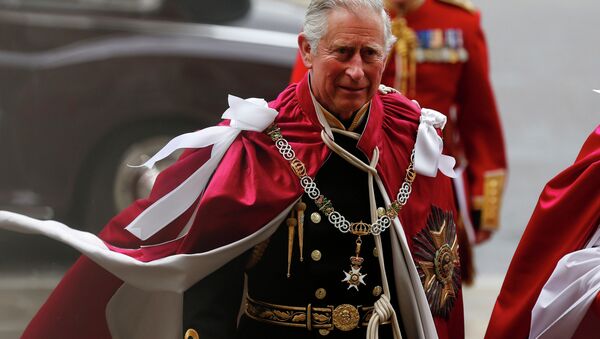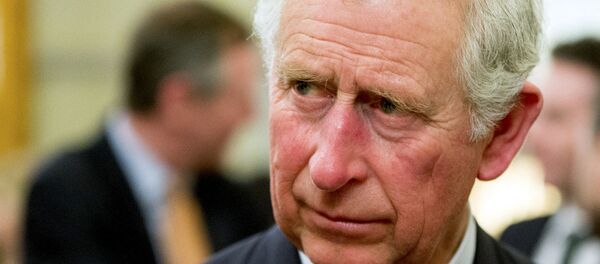The UK Supreme Court had earlier ruled that the public has the right to see the letters written by Prince Charles to senior government and Whitehall figures in which he attempted to influence government policies.
The letters — known as 'black spider' owing to the ink and handwriting — have finally been published after a ten-year battle by journalists and freedom of information campaigners, who say the British public has the right to know the extent of the Prince's lobbying of ministers.
The heir to the throne, who owns the Duchy of Cornwall, has major interests in agriculture holdings in Devon, with other large holdings in Cornwall, Herefordshire, Somerset and Wales. He wrote to ministers on issues close to both his heart and his wealth: agriculture, health, foods and planning.
Despite being part-redacted, the letters show the huge extent of the prince's dealings with government ministers, who will have been put under pressure by correspondence from the heir to the UK throne. The letters disclose that:
"His Royal Highness corresponded with the Prime Minister on issues of particular concern including supporting hill farmers, bovine tuberculosis (TB), procuring British produce including British beef and challenges for the dairy sector. The letters deal with the mid-term review of the Common Agricultural Policy, and help that could be provided to farmers who were struggling to cope with the new business processes."
In another letter to Tony Blair, Prince Charles lobbied on the poor performance of the Lynx military helicopter in Iraq. He wrote:
"I fear this is just one more example where our armed forces are being asked to do an extremely challenging job (particularly in Iraq) without the necessary resources."
The Prince has long lobbied over planning issues and is revealed to have stepped in over the proposed redevelopment of London's Smithfield Market.
"I attach greatest importance to preserving, restoring and re-using such precious heritage townscapes and I can only pray that the Deputy Prime Minister will take your advice and give the most careful consideration to development plans," he wrote.
When not trying to save the albatross, Prince Charles was agitating to have historic buildings in N Ireland rebuilt. What's not to like?
— Tom Holland (@holland_tom) May 13, 2015
Trying to keep the Prince Charles letters private has cost the taxpayer £550,000. That's enough for 303 duck islands, or 250 spotless moats.
— Tom Peck (@tompeck) May 13, 2015
Prince Charles, who is a keen advocate of complementary medicines and a supporter of regulation in the industry, wrote to Blair, and the Secretary of State for Health, John Reid. Labour sources have said the Prince discussed other areas of alternative medicine, such as homeopathy, in meetings with Andy Burnham, when he was Health Secretary.
Critics of the monarchy say all these contacts between the prince and politicians go against the principle of royalty remaining at arms length from government.
Prince's Close Relationship With Ministers
A former Environment Secretary, Michael Meacher, is on record as saying that he and Charles had worked together to persuade former Prime Minister Tony Blair to push green energy and block the use of Genetically Modified crops:
"We would consort together quietly in order to try and ensure that we increased our influence within government."
"I know he spoke to Tony Blair, obviously he would regularly speak to the Prime Minister, and I'm sure he told him his views, so we were together in trying to persuade Tony Blair to change course," Meacher said. He said it was possible that there was a constitutional problem in that a member of the Royal Family was advocating a political opinion.
Blair's biography noted: "He had made it his business to acquaint himself with leading members of what was likely to be the governing party. He was a curious mixture of the traditional and the radical (at one level he was quite New Labour, at another, definitely not), and of the princely and insecure. He led a life in which naturally people deferred to him."
Ten-year Battle Against Government Cover-Ups
Guardian journalist Rob Evans, who led the battle to have the black spider memos published said:
"The government has fought very hard for a decade to prevent the disclosure of 27 pieces of correspondence between the prince and ministers in Tony Blair's government."
"Ministers have hired expensive lawyers to try to prevent the disclosure of the letters. The Guardian was only able to win this battle because it could hire barristers to match — and defeat — the government's lawyers."




